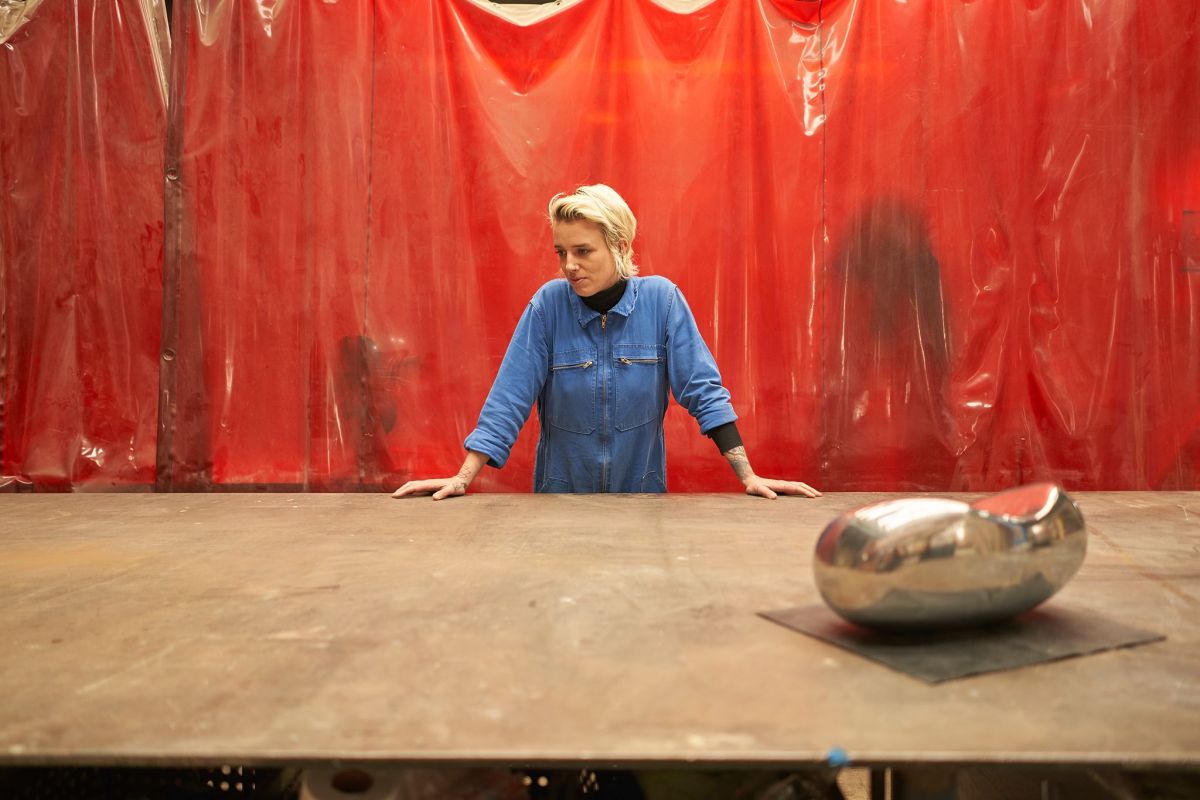In arts funding, one size does not fit all
THE BUSINESS OF ART | The dominance of one-size-fits-all arts funding is being challenged by a newly-expanded initiative from the Adelaide Fringe.


Patch Theatre's 'The Lighthouse'. Photo: Mark Gambino
“Often it’s where innovation really happens,” says Adelaide Fringe director and CEO Heather Croall, “when you allow collaboration to emerge in a way that’s not very prescribed.”
Croall is describing the newly-announced Arts Industry Collaborations, a funding scheme supported by the James and Diana Ramsay Foundation that sees Fringe work as a partner with an array of SA arts organisations.
The nature of the initiative is difficult to encapsulate because it varies wildly from partner to partner. Some, like ActNow Theatre, will use the framework to create artist residencies, while others will offer artist grants, workshops or use of facilities.
It is organic by design, says Croall, so that organisations and artists can explore what works best for them. In a climate of highly-prescriptive arts funding, it’s an outlier.
Early support recipients are enthusiastic about the potential to fill funding gaps.
Mary Angley (Paper Mouth Theatre), Caitlin Ellen Moore (Wickedly Good Productions) and Dan Thorpe will use The Mill’s 2021 Centre Stage Residency – part of the Arts Industry Collaborations initiative – to progress their new show YOU’RE ALL INVITED TO MY SON SAMUEL’S FOURTH BIRTHDAY PARTY.
“It’s one of the very few residencies where you have time to develop your work… it’s rare for that to be funded in the arts scene,” says Moore.
The open structure of the Arts Industry Collaborations harks back to its roots. The first partner organisation was George Street Studios – a multi-disciplinary workshop in Thebarton.
“It was actually Tony Rosella [a founding member of George Street Studios] that reached out to us,” says Jo O’Callaghan, Fringe’s head of program operations and business development.
“He was really passionate and engaged in wanting to work with young visual artists and give them a space to grow. We looked at what was available and we reached out to a lot of our visual artists and said, ‘What is it that you need?’ And overwhelmingly what we got back was, ‘We need space’.”
Artists who have benefitted from the George Street residency, which offers rent-free studio space, use of tools and machinery, and mentoring, include Kate Bohunnis – winner of the 2021 Ramsay Art Prize.
Broadening the scheme was contingent on finding partners with equal enthusiasm for its aims, says O’Callaghan. The Mill residency was launched about two years ago, and the recent induction of more than five new organisations signals a rapid expansion.
“We did a public call-out and then we went out to a lot of different organisations,” says O’Callaghan. “We just said, ‘Look, we want to collaborate with you and these are the resources we have and this is what we’re trying to achieve’.
“We want to create a long-term legacy for artistic practice in the state and really support that small to medium art sector to grow. The ones that we’ve collaborated with just got it.”

Kate Bohunnis at George Street Studios. Photo: Sam Roberts, courtesy ACE Open
Among the new cohort is Patch Theatre. The company is still hashing out the specifics of how it will deliver support, but its funding is likely to incorporate a cross-disciplinary residency.
General manager Penny Camens says that while the initiative will morph to suit its recipients and the company, the purpose will always stay the same.
“Patch has a long-time commitment to developing artist pathways,” she says.
“We really value artists having opportunities to continue working in Adelaide and not having to maybe move to other places, so I think these offerings that happen throughout the year rather than being concentrated into one point of time will really help to see that ecology grow.”
The challenge of funding programs that lean less heavily on prescribed outcomes is in measuring their effectiveness. O’Callaghan says Fringe is hoping “to see systemic change happen, but probably in 10 years’ time”.
Before the decade rolls around, there is some room for the satisfaction of specific goals through what Croall calls a process of “co-design”, in which host organisations, Adelaide Fringe and artists together decide on how individual offerings will be structured.
The Mill Centre Stage Residency provides an example of how different priorities are balanced. While it allows artists an unusual amount of creative and conceptual development time, it also includes a portion of funding specifically set aside for marketing or professional development.
“It almost forces us to step back and see we can’t cut corners on this,” says residency recipient Moore, who acknowledges the temptation to allocate limited funds toward more immediate costs, like venue hire or artist fees.
“We have to be investing the money in the things that are important to run a Fringe show… I think to have that built into it and to have that mentorship and know that we’ll be able to leave with those skills… is really nice.”
This particular element of the program connects it clearly with Adelaide Fringe’s focus on proactively supporting artists and organisations – both in developing their creative work and in developing the skills for a sustainable career.
But in the broader picture, the program has a broader lesson – that, even for large organisations, a one-size-fits-all funding model is far from the only option.
The Business of Art is an InReview series about the development of performing arts careers and opportunities from Adelaide. The series has been produced with the support of Adelaide Fringe.
Read more of the series here.




